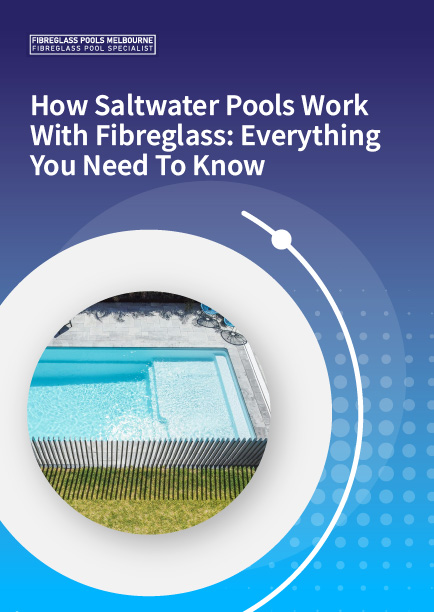
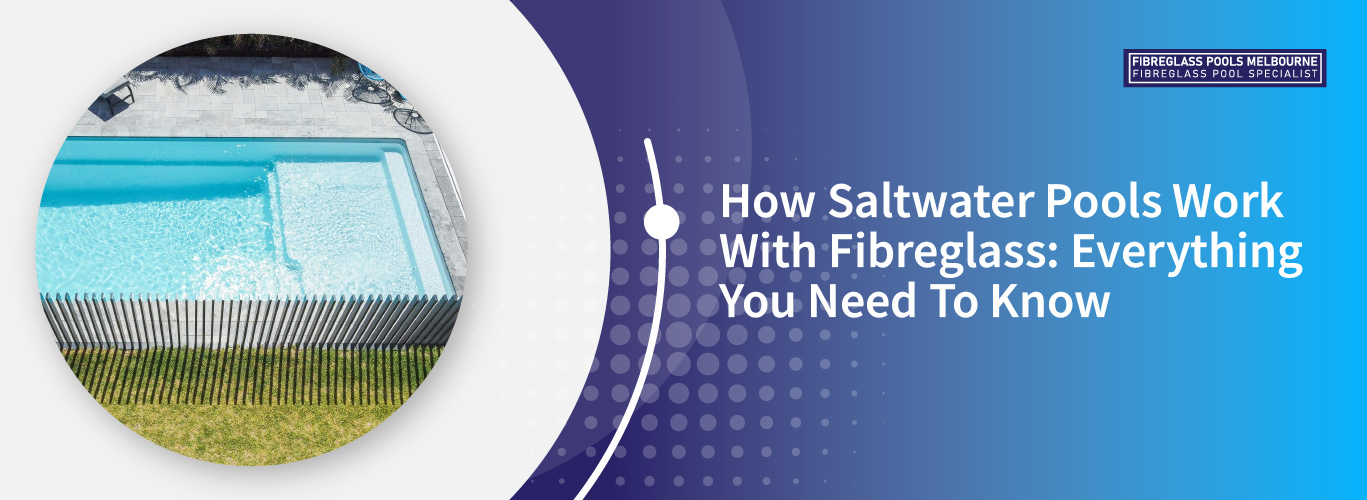
How Saltwater Pools Work With Fibreglass: Everything You Need To Know
If you’re planning a new pool installation or considering a water system upgrade, you’ve probably come across the term saltwater pool more than once. They’re often praised for being low-maintenance, gentler on skin, and more eco-friendly than traditional chlorine pools. But how exactly do saltwater pools work—and more importantly, are they compatible with fibreglass pools? In this article, we’ll break down how saltwater pool systems function, the pros and cons, and why they’re a popular choice for fibreglass pool owners across Australia.
What Is a Saltwater Pool?
A saltwater pool isn’t chlorine-free as many people think—it simply uses a different method to sanitise the water. Rather than manually adding chlorine, saltwater pools use a salt chlorinator (also called a saltwater chlorinator or chlorine generator) to convert pool salt into chlorine through a process called electrolysis.
Here’s how it works:
- You add pool-grade salt to the water.
- The saltwater passes through the chlorinator cell.
- Electrolysis splits the salt (sodium chloride) into sodium and chlorine.
- The chlorine sanitises your pool water, killing bacteria and algae.
- Once it’s done sanitising, it reverts back to salt—repeating the cycle.
This continuous process keeps your pool sanitised without the need to handle liquid chlorine or tablets.
Are Saltwater Systems Safe for Fibreglass Pools?
Yes—saltwater systems are very compatible with fibreglass pools. In fact, many Australian homeowners with fibreglass pools choose saltwater over traditional chlorine because it offers a smoother, lower-maintenance swimming experience and is gentler on the pool surface.
Fibreglass pools have a non-porous gelcoat surface, which means they don’t absorb water or chemicals like concrete pools can. This makes fibreglass particularly well suited to saltwater systems, which can be corrosive to some surfaces and pool components if not managed properly.
Benefits of Saltwater Pools for Fibreglass
Choosing a saltwater system for your fibreglass pool offers a range of practical and lifestyle benefits:
1. Softer, Silkier Water
Saltwater feels smoother and less irritating than heavily chlorinated water. It’s gentler on skin, eyes, and hair—great for families with kids or those with sensitivities.
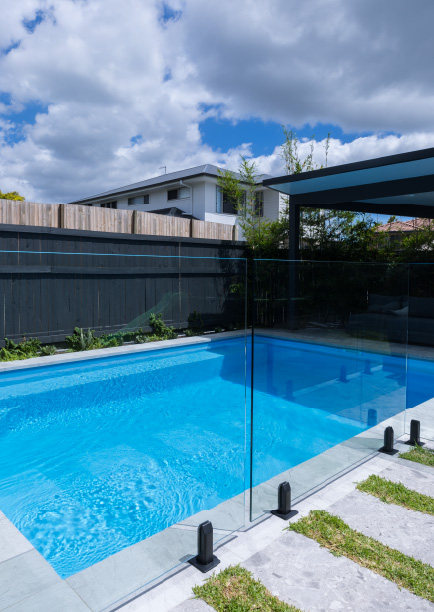

2. Lower Chemical Usage
You won’t need to manually add chlorine weekly. While the chlorinator still produces chlorine, it does so in consistent, lower levels—reducing your exposure to harsh chemicals and smells.
3. Less Maintenance
Saltwater pools are known for being easier to maintain. You’ll still need to test and balance your pool water regularly, but the day-to-day chemical demands are reduced.
4. Cost-Efficient Over Time
Although the initial setup for a saltwater chlorinator can be more expensive, ongoing chemical costs are generally lower. This can save money over the life of your pool.
5. Fibreglass-Friendly
Because fibreglass pools are corrosion-resistant and have a smooth gelcoat, they’re less prone to wear and tear from salt exposure compared to other pool types.
Considerations Before Choosing Saltwater
While saltwater systems are an excellent choice for fibreglass pools, there are still a few things to be mindful of:
1. Initial Setup Cost
Installing a salt chlorinator can cost more upfront than going with a traditional chlorine system. However, most homeowners find the long-term savings and convenience worthwhile.
2. Salt Can Affect Surrounding Surfaces
Saltwater can be corrosive to metal fixtures, pavers, and fencing if splashed frequently and not rinsed off. This is more about the area around your pool than the pool itself, but it’s worth considering. Choose salt-friendly materials when designing your poolside space.
3. Equipment Compatibility
Always make sure your pool equipment—like pumps, heaters, and filters—is rated for saltwater use. Modern fibreglass pools and accessories are usually salt-safe, but it’s best to double-check.
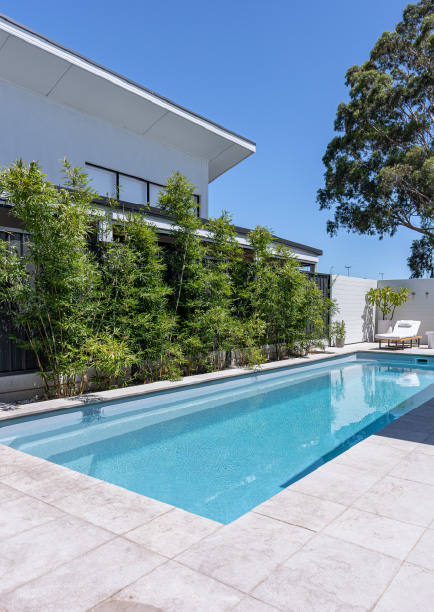
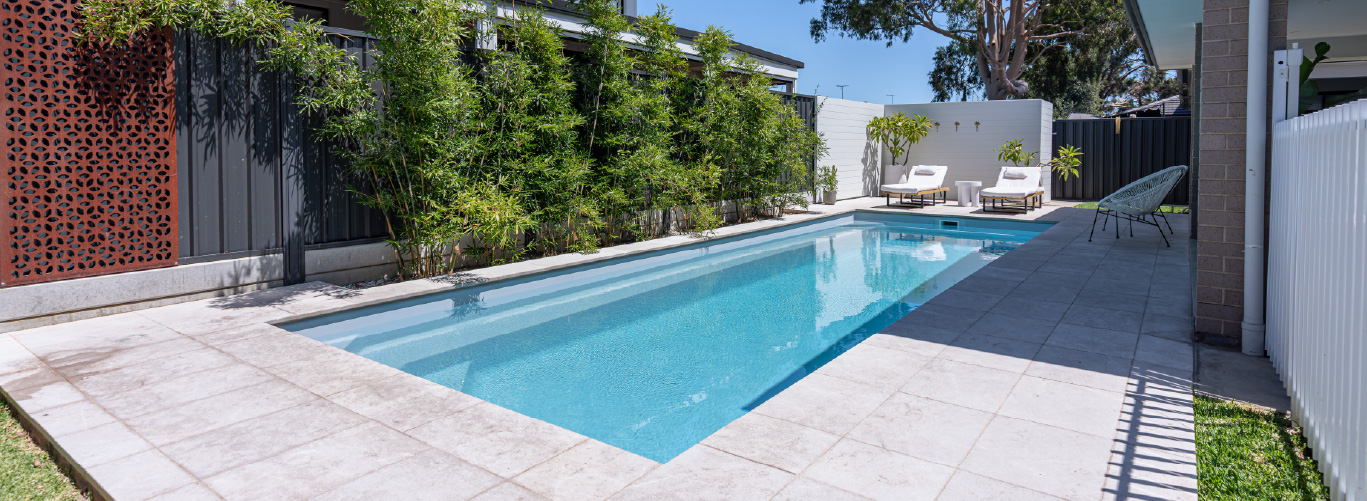
How Much Salt Do Saltwater Pools Need?
Saltwater pools only need a small amount of salt compared to the ocean. To put it in perspective, ocean water contains around 35,000 ppm (parts per million) of salt. A saltwater pool typically runs at 3,000–4,000 ppm.
This level is so low that it’s barely detectable by taste or touch—but it’s enough to enable the chlorinator to work effectively.
For most fibreglass pools, you’ll need to add salt once during setup and then only occasionally after backwashing or topping up the water. It’s a set-and-forget approach many pool owners love.
Salt vs. Mineral Pools: What’s the Difference?
It’s common to see saltwater and mineral pools compared. The main difference is the type of sanitiser and the additives in the water.
- Saltwater pools use sodium chloride to generate chlorine through electrolysis.
- Mineral pools also generate chlorine, but include minerals like magnesium or potassium for added water softness and therapeutic benefits.
Both systems are compatible with fibreglass pools and offer similar ease of use, but mineral systems tend to feel even softer and can be a little more expensive to run.
Tips for Maintaining a Saltwater Fibreglass Pool
- Test the water weekly, especially for chlorine, pH, and salt levels.
- Clean your chlorinator cell every few months to prevent calcium build-up.
- Check for scaling around fittings and the waterline and clean as needed.
- Keep salt at the recommended level (usually around 3,500 ppm).
- Balance other chemicals, like alkalinity and calcium hardness, to prevent corrosion or scale.
When balanced correctly, saltwater systems are incredibly user-friendly—and fibreglass pools make the perfect partner.
Why Fibreglass + Saltwater Is a Winning Combo
If you’re looking for a low-fuss, high-comfort swimming experience, combining fibreglass pools with saltwater systems just makes sense. You get:
- A durable, low-maintenance pool surface
- Softer, more enjoyable water
- Reduced chemical handling
- A modern system that suits the Aussie climate
- Long-term cost efficiency
It’s no wonder more and more families are choosing saltwater fibreglass pools for their backyards.
Final Thoughts
How saltwater pools work with fibreglass is a question many Aussie homeowners are asking—and the answer is clear. The two go hand-in-hand. With the right setup and basic maintenance, a saltwater system can give you clean, comfortable water and long-term protection for your pool.
Whether you’re after a new pool installation or want to convert an existing system, a saltwater fibreglass pool offers the perfect blend of comfort, ease, and durability.
At Fibreglass Pools Melbourne, we specialise in premium fibreglass pool installations designed for modern Australian living. We’ll help you choose the right water system—whether it’s saltwater, mineral, or something else entirely—and ensure your pool looks and performs beautifully for years to come.
Get your free pool quote today and start building your dream saltwater pool with Melbourne’s trusted fibreglass pool experts.
